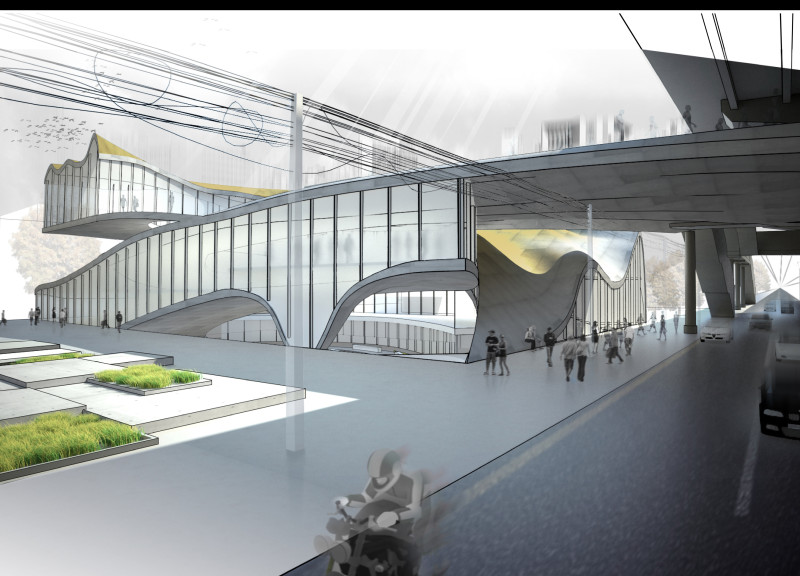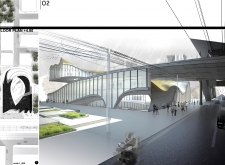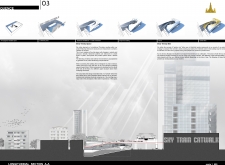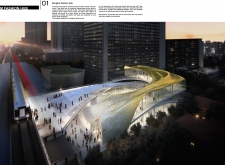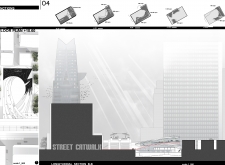5 key facts about this project
### Overview
Located in the vibrant heart of Bangkok, the Fashion Hub merges urban design with cultural identity and sustainability. This project integrates elements of fashion within the urban landscape, reflecting Thailand's cultural richness while promoting functionality and innovative design approaches.
### Architectural Form and Spatial Organization
The building features an organic design, characterized by fluid shapes that contrast with traditional urban orthogonal layouts. The undulating roof, reminiscent of flowing fabric, signifies creativity and aligns with the dynamic nature of fashion. The layout supports various activities by placing public areas closer to the entrance for enhanced visibility, while more private exhibition spaces are situated on higher levels, accessed via gently sloping walkways that echo local architectural traditions. The strategic organization of spaces encourages exploration and interaction, guiding visitors through diverse functions like exhibitions, showrooms, and casual gathering areas.
### Material Selection and Sustainability
The choice of materials is fundamental to the project's identity. Extensive use of glass for façades ensures natural lighting and visual connectivity with the surrounding environment. Concrete provides structural stability while allowing for sculptural forms, and metal finishes such as aluminum and steel enhance the building's modern aesthetic and functionality. Sustainable practices are prioritized through the incorporation of green roofs and local plants, which promote biodiversity and reduce energy consumption. This commitment to environmentally responsible design is embedded throughout the Fashion Hub, establishing it as a model for future urban development.


